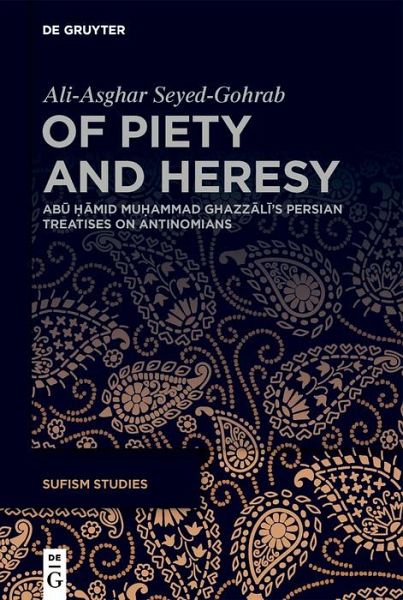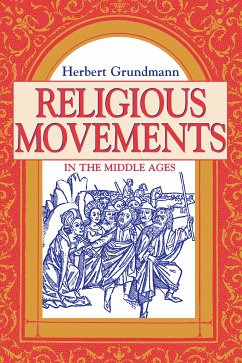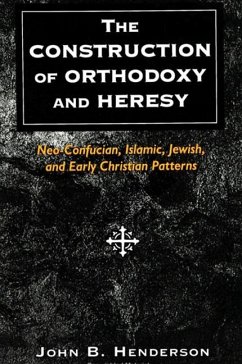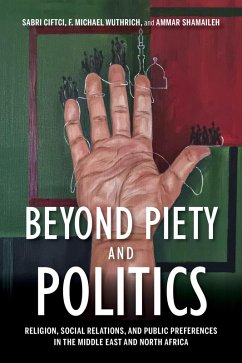
Of Piety and Heresy (eBook, ePUB)
Abu ¿amid Mu¿ammad Ghazzali's Persian Treatises on Antinomians

PAYBACK Punkte
35 °P sammeln!
This book examines and contextualizes Abu ¿amid Müammad Ghazzali's (d. 505/1111) fierce response to antinomian and freethinking currents in twelfth-century Persia. Seyed-Gohrab offers a translation of Ghazzali's treatise on antinomians, and one of his religious rulings (fatwa) on the topic. Both were written after Ghazzali's intellectual crisis in 488/1095, when he voluntarily withdrew from his position as a Professor at the prestigious Ni¿amiyya College in Baghdad. He determined to live an ascetic life, devoting all his attention to God. In this period, Ghazzali wrote his masterpieces in A...
This book examines and contextualizes Abu ¿amid Müammad Ghazzali's (d. 505/1111) fierce response to antinomian and freethinking currents in twelfth-century Persia. Seyed-Gohrab offers a translation of Ghazzali's treatise on antinomians, and one of his religious rulings (fatwa) on the topic. Both were written after Ghazzali's intellectual crisis in 488/1095, when he voluntarily withdrew from his position as a Professor at the prestigious Ni¿amiyya College in Baghdad. He determined to live an ascetic life, devoting all his attention to God. In this period, Ghazzali wrote his masterpieces in Arabic and Persian. Seyed-Gohrab shows that these two less-known works shed new light on the motivation for Ghazzali's major works. The book depicts Ghazzali's Persian intellectual context, and the tumultuous political period in which a strong literary and Sufi antinomian trend emerged from the social periphery to become central to literary activities at the Saljuq court. The book also treats Ghazzali's Persian poetry, offering original insights into Ghazzali's contemporary, the celebrated polymath ¿Umar Khayyam (d. about 525/1131), whose transgressive quatrains are interpreted as a response to a suffocating religious context.
Dieser Download kann aus rechtlichen Gründen nur mit Rechnungsadresse in A, B, BG, CY, CZ, D, DK, EW, E, FIN, F, GR, HR, H, IRL, I, LT, L, LR, M, NL, PL, P, R, S, SLO, SK ausgeliefert werden.













